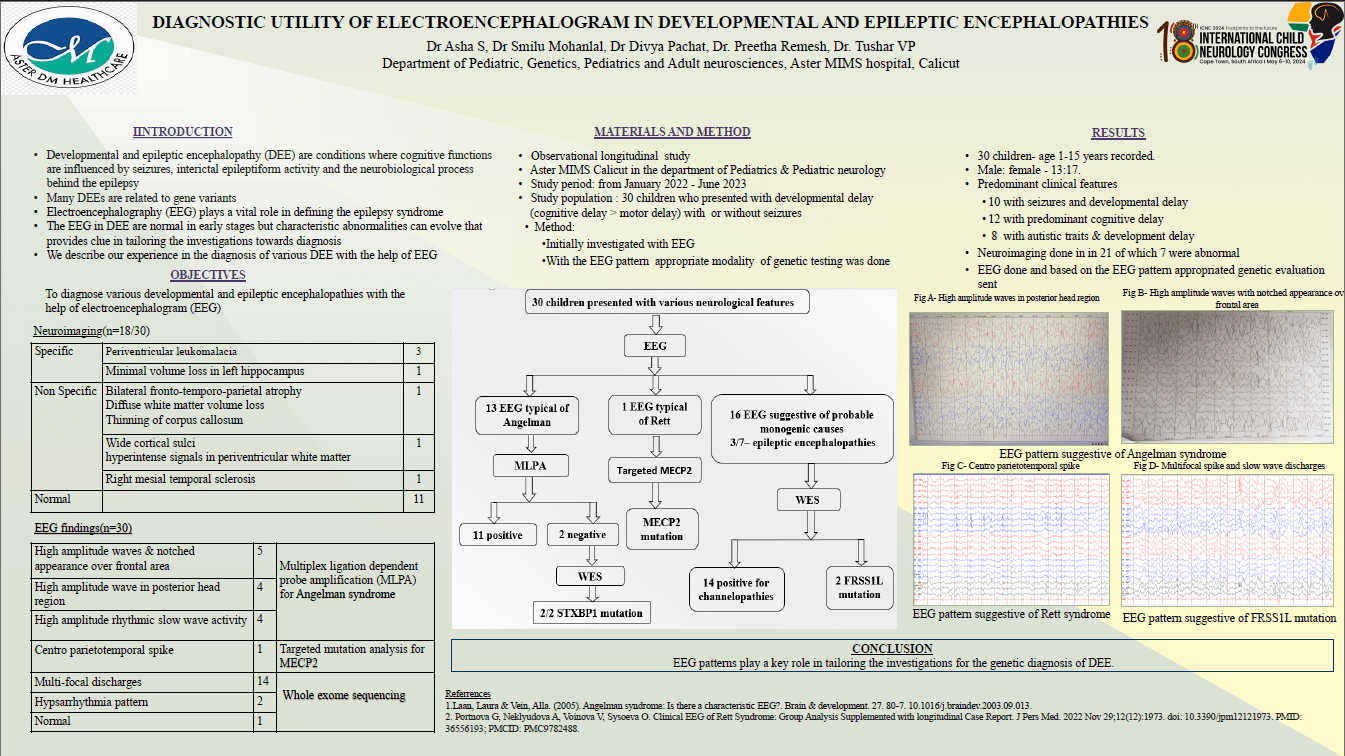Diagnostic Utility Of Electroencephalogram In Developmental And Epileptic Encephalopathies
Developmental and epileptic encephalopathy (DEE) : cognitive functions are influenced by seizures, interictal epileptiform activity and the neurobiological process behind the epilepsy.There are genetic basis for DEE. Electroencephalography (EEG) plays a vital role in defining the epilepsy syndrome . The EEG in DEE can have characteristic abnormalities that provides clue in tailoring the investigations . We describe our experience in the diagnosis of DEE with the help of EEG.
An observational study conducted at Aster MIMS Calicut from January 2022 - June 2023. 31 children presented with developmental delay (cognitive> motor delay) with or without seizures were investigated initially with EEG and then appropriate modality of genetic testing was done with help of EEG findings.
Data of 31 children of 1-15 years were recorded. Male: female 14:17. Clinical features - 10 with seizures, 13 developmental delay and 8 with autistic traits. 7/21 neuroimaging were abnormal. EEG findings: A. High amplitude rhythmic triphasic delta with notched appearance in descending phase over frontal area- 5 B. High amplitude wave in posterior head region-4 C. High amplitude rhythmic slow wave activity- 4 D. Centro parietotemporal spike- 1 E. Multi-focal discharges- 14 F. Hypsarrhythmia pattern- 2 G. Normal-1
TA, B, C (13/31) EEG findings underwent MLPA for angelmann, 11/13 were positive.D (1/31) underwent targeted mutation analysis for MECP2 - positive. E, F, G (16/31) underwent WES of which 15 - channelopathies and 3 - FRSS1L mutation. (Flowchart:1)
EEG plays a key role in tailoring the investigations for the genetic diagnosis of DEE.
Smilu Mohanlal
Aster Malabar institute of Medical sciences
India
Asha Sundaran
Aster malabar institute of Medical sciences
India
Tushar V.P
Aster Malabar institute of medical sciences
India
